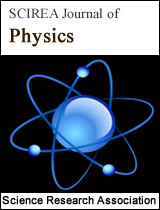What is heat?
DOI: 10.54647/physics14487 81 Downloads 16190 Views
Author(s)
Abstract
According to Aristole’s Categories, there are three kinds of concept, i.e. substance, quality and quantity in physics. With the question “What is heat?”we mean : is heat a substance, a quality or a quantity? Historically, heat was referred to a substance caloric. Now, it is prevailed that heat is a quantity Q, also called “the quantity of heat” or simply “heat”. In this paper, we propose that heat is neither a substance, nor a quantity, but a quality or a property we perceive. We even conclude that the quantity of heat is not the quantity Q, but the quantity caloric or entropy S.
Keywords
category; heat; quantity of heat; caloric; entropy
Cite this paper
Minhua Chen,
What is heat?
, SCIREA Journal of Physics.
Volume 7, Issue 6, December 2022 | PP. 244-258.
10.54647/physics14487
References
| [ 1 ] | Aristotle. Categories. in The Basic Works of Aristotle (Random House, New York, 1941), Chap.6. |
| [ 2 ] | K. Kurki-Suonio. Concepts as Gestalts in Physics Teacher Education. Gestalt Theory, 35(1), 2013:59-76. |
| [ 3 ] | A. B. Arons. Development of Concept of Physics. Addison-Wesley Publishing Company, Inc. 1965. |
| [ 4 ] | C. Frontali. History of Physical Terms: “Energy”. Physics Education, 49(5), 2014:564-573. |
| [ 5 ] | M. W. Zemansky. The Use and Misuse of the Word“Heat” in Physics Teaching. The Physics Teacher, 8(6), 1970:295-300. |
| [ 6 ] | Minhua Chen. Comment on “A new perspective of how to understand entropy in thermodynamics”. Physics Education, 56(2), 2021:028002. |
| [ 7 ] | H. U. Fuchs. The Dynamics of Heat, Second Edition. Springer Science+Business Media, LLC, 2010. |
| [ 8 ] | J. Black. Lectures on the Elements of Chemistry. J. Robison Ed. Vol. I, Longman and Rees, London and William Creech, Edinburgh, 1803. |
| [ 9 ] | G. Job and R. Rüffler. Physical Chemistry from a Different Angle. Springer International Publishing Switzerland, 2016. |
| [ 10 ] | F. Herrmann and M. Pohlig. Which Physical Quantity Deserves the Name “Quantity opf Heat”? Entropy, 2021, 23, 1078. |
| [ 11 ] | G. Falk. Entropy, A Resurrection of Caloric——A Look at the History of Thermodynamics. Eur. J. Phys. 1985(6):108-115. |
| [ 12 ] | G. B. Schmid. A New Approach to Traditional Physics. The Physics Teacher, 24(6), 1986:349-351. |
| [ 13 ] | G. B. Schmid. An Up-to-date Approach to Physics. Am. J. Phys., 52(9), 1984:794-799. |
| [ 14 ] | M. Pohlig and J. Rosenberg. Three Chances for Entropy. Lat. Am. J. Phys. Educ. Vol.6. Suppl. I. June 2012. |
| [ 15 ] | S. C. Brown. Benjamin Thompson, Count Rumford. The Physics Teacher, 14(5), 1976:270-281. |
| [ 16 ] | V. K. La Mer. Some Current Misinterpretations of N. L. Sadi Carnto’s Memoir and Cycle. Am. J. Phys. 22(1), 1954:20-27. |
| [ 17 ] | T. S. Kuhn. Carnot’s version of “Carnot’s Cycle”. Am. J. Phys. 23(2), 1955:91-95. |
| [ 18 ] | V. K. La Mer. Some Current Misinterpretations of N. L. Sadi Carnot’s Memoir and Cycle. II. Am. J. Phys. 23(2), 1955:95-102. |
| [ 19 ] | M. A. Hirshfeld. On “Some Current Misinterpretation of Carnot’s Memoir”. Am. J. Phys. 23(2), 1955:103-105. |
| [ 20 ] | T. S. Kuhn. La Mer’s Version of “Carnot’s Cycle”. Am. J. Phys. 23(6), 1955:387-389. |
| [ 21 ] | G. Falk, F. Herrmann and G. B. Schmid. Energy Forms or Energy Carriers? Am. J. Phys. 51(12), 1983:1074-1077. |
| [ 22 ] | G. Job and T. Lankau. How Harmful is the First Law? . Ann. N. Y. Acad. Sci. 988(5), 2003:171-181. |
| [ 23 ] | G. E. Smith. The vis viva dispute: A Controversy at the Dawn of Dynamics. Physics Today, 59(10), 2006:31-36. |

